- Home
- Robert Rankin
Necrophenia Page 8
Necrophenia Read online
Page 8
Neil and Toby put me straight on this, however, and I was forced to review the entire sad episode part by part and come to the dire conclusion that it was all my fault.
It had all started with the copy of Teenage She-Male Today that had come through our letter box. This magazine, it now appeared, was a clever fake, run up by some dodgy printers and brimming with big news about a non-existent band called Venus Envy.
I determined to track down the printer. But I was immediately thwarted in this enterprise by the discovery that my fundamentalist mother had consigned Teenage She-Male Today to the flames of the sitting-room fire.
But I had the poster.
But the poster had obviously been turned out on one of those Roneo machines. There was one at Southcross Road Secondary School. They were everywhere. And there would be no way of telling which machine the posters had been printed on.
But did I say posters? Of course, as it turned out, there had been no other posters, just the one that had been - and I had to have a little think about it then - how had I come by the poster in the first place? Oh yes, it had been posted through our letter box the day after the Teenage She-Male Today had arrived.
And then, of course, there had been that roadie. The one who had volunteered to come to The Divine Trinity to help load the equipment.
But why such an elaborate scheme? Why not simply turn up at any time we weren’t there and steal all our equipment?
Well, that was sort of obvious, too: because I pretty much lived there and I wouldn’t have given up the equipment without a fight. So they would probably have had to kill me.
No, it was a masterpiece. They’d even made sure that Mr Ishmael showed up for the gig. There had been no loose ends. And with all the wigs and heavy make-up, there would be no way of identifying the villains.
I could identify the roadie, though. He looked like . . . well, he looked like . . . well, he looked just like a roadie, really, and they all look very much the same. That roadie looked like my dad.
So I was stuffed, good and proper. Just like a turkey. Which was, at least, seasonal.
But I would have them. I would. Somehow. I would track them all down and retrieve our equipment and bring those blighters to justice.
I was lying in bed, planning the terrible revenge that I would take, when the doorbell rang, and this was shortly followed by my mother coming upstairs and beating upon my bedroom door. ‘It’s a Mr Ishmael to see you,’ she shouted through the pine panelling. ‘He seems to be rather upset.’
So I rose from my bed of pain, shrugged on my dressing gown and went downstairs to face the music.
My mother had admitted Mr Ishmael to our sitting room and he stood, his turquoise velvet jacket raised at the back, a-warming his bum by the fire.
‘This is a very bad business,’ he said as I entered the room, which felt somewhat colder than usual. ‘All of the equipment, all of it. This is appalling.’
And I agreed that it was.
‘Well, come on, then,’ said Mr Ishmael. ‘Get your clothes on and I will take you down to the police station. You can make a full report and get a “crime number” so that you can claim on your insurance.’
‘Ah,’ I said. And, ‘That.’ And I think I said, ‘Really?’ also.
‘Step to it,’ said Mr Ishmael. ‘These things take time and the legitimate gig that I have arranged for you is next week.’
‘Ah,’ I said, once again. And I do believe that I might have said, ‘Now there’s a thing,’ as well.
But I stood and I dithered and I think that must have been what gave the game away.
‘You do have the equipment insured, don’t you?’ asked Mr Ishmael. ‘The equipment is legitimate? You did pay for that equipment, didn’t you?’
And I don’t think I made any reply at all to this. Although I might well have done some mumbling, and I’m reasonably certain that I scuffed my naked heels upon the green baize carpet.
‘Calamity!’ cried Mr Ishmael. ‘Ruination!’ And he began to thrash about with his black Malacca cane, the one with the penis-and-balls handle. And he swept the mantel clock from the mantel shelf and overturned the Peerage fireplace companion set, the one that was made out of brass and resembled a galleon in full sail.
‘Disaster!’ he cried, and he kicked over the visitors’ chair.
And all this shouting and knocking about of things attracted the attention of my mother, who was turning parsnips gently in a bucket by the stove.
‘Whatever is going on?’ she shrieked, entering our sitting room with the parsnip-turner raised above her hair-netted head. It was a big parsnip-turner, made of brass and of the Peerage persuasion, with a handle that was fashioned into the likeness of an Indian chief.
Mr Ishmael glared at my mother. He fairly glared, I can tell you. And my mother turned tail and fled back to her turning of the parsnips (well, Christmas was coming, and a well-turned parsnip is better than a badly shuffled sprout9).
‘Well,’ said Mr Ishmael to me, ‘what do you intend to do about this aggrievous situation?’
‘I think I might go and assist my mother,’ I suggested. ‘And whilst doing so, give the matter some most intense thought.’
‘Oh you do now, do you?’ And Mr Ishmael rocked upon his heels and, although it must surely have been some trick of the winter light, it looked for all the world as if little sulphurous wisps of smoke issued from his ears.
‘I will get the equipment back,’ I said. ‘I really will, I promise.’
‘Ah,’ said Mr Ishmael, lowering his cane and placing both hands upon its handle. ‘You have formulated a plan. Most enterprising. Share this plan with me this minute and I will see whether it needs any necessary adjustments.’
‘I have no plan, as such,’ I said and I made a sulky face. ‘But I will get our stuff back. I really, truly will.’
Mr Ishmael leaned his cane against the fireplace. He picked up the larger pieces of the clock and returned them to the mantel shelf, and he righted the Peerage fireplace companion set that was fashioned from brass and resembled a galleon in full sail. And he returned the visitors’ chair to its legs and sat himself down on it.
And then he sighed. And it was a real deep heartfelt belter of a sigh.
‘I should have been expecting this,’ he said. ‘I got careless.’
I shook my head and I shrugged a little, too.
‘I thought I had it all sussed out this time, picking a bunch of complete no-marks. It all seemed so simple. But that was because it was simple. Too simple.’
I sat down on the Persian pouffe, which had, at least, avoided attack. ‘Pardon me, sir,’ I said, ‘But I do not believe that I know what you are talking about.’
‘Well, of course you do not. The beauty of this was that had it all worked out, you and your companions would have prospered and probably never ever have needed to know what it was all about.’
Which left me none the wiser, I can tell you.
‘I will just have to start all over again,’ said Mr Ishmael. ‘In another country. Probably the Holy Land. I should have set this up there in the first place. There is no other way for it.’
‘Now, hold on,’ I said. ‘Are you saying that you aren’t going to manage us any more?’
‘What is there to manage?’
‘Oh no, hold on, please.’
‘I must go,’ said Mr Ishmael. ‘I have wasted far too much time on this already.’
‘No,’ I said. ‘Stop. You promised to make us rich and famous. And we signed your contract. In blood! And at midnight, and down at the crossroads. And I know what that means.’
‘No you don’t,’ said Mr Ishmael. ‘You have no idea what it means. And now you will never know.’
‘But I must,’ I said. And I was getting frantic. Clearly something was going on, something big. And for a moment, and unconsciously, we Sumerian Kynges had been part of this something. But now we were about to be discarded. Cast down from being part of this something. And it was all, it appeared
, my fault.
‘No!’ I said. And I said it very loudly. ‘You can’t just leave us. I will get things sorted, I really really promise. I’ve been out of work since I left school, you see, because I couldn’t make up my mind about what job I wanted. And I did think that as I was going to get rich as a musician that I didn’t really need a proper job. But now I know, I do know. I will become a private investigator. And my first case will be to recover The Sumerian Kynges’ stolen equipment.’
Mr Ishmael groaned at this. It was a groan combined with a sigh and it was not a pleasant thing to listen to. Plaintive, it was. Heartfelt.
‘Don’t doubt me,’ I said. ‘Don’t ever doubt me.’
‘Oh,’ said Mr Ishmael. ‘Assertiveness. This is somewhat unexpected. ’
‘Tell me what all this is about,’ I said.
Mr Ishmael shook his head. ‘I cannot.’
‘But perhaps I could help. In fact, I will definitely help. I promise that I will.’
‘You are making a lot of promises.’
‘Because I care,’ I said. ‘Because this matters to me. I want the band to be a success. I accept that this mess is of my making. I’m taking the blame and I will make amends. And I promise that, too.’
And Mr Ishmael smiled. Which I found quite a relief.
‘You are a good boy,’ said Mr Ishmael. As indeed my mother had said upon many occasions past. ‘And I will tell you what - I will make a personal deal with you.’
‘Not more blood on the contract,’ I said.
‘No.’ And now Mr Ishmael laughed. ‘I will do this deal with you: if you can locate the stolen goods - you only have to locate them, that is all, and tell me where they are, and I will recover them - but if you can locate them successfully, then I will tell you everything. It will rock your world, as they say. And you might well wish that you had never been told.
‘But I have faith in you, Tyler. Yes, I do. And so if you locate the equipment, you will have proved yourself to me, and in return I will divulge a mighty secret. The mighty secret, regarding Mankind, its history and its future. And the part you can play in moulding this future.’
And with that said, he rose from the visitors’ chair with consummate dignity, extended his right hand for me to shake, which I did, gave me a card with his telephone number on it and then took his leave of our house.
And the pieces of the mantel clock that had been returned to the mantel shelf managed a rather faltering tick-tock-tick, and I took to wondering just what I was getting myself into.
And just as I had come to the conclusion that it was probably something absolutely wonderful and that I was going to be exalted amongst men for involving myself in it—
The clock stopped.
Dead.
16
You surely must know of Hugo Rune, and of his acolyte, Rizla.
Rune was a mystic and master of the arts magical who engaged, in the early nineteen-sixties, in an adventure involving twelve ‘carriage-way constellations’, zodiac figures formed from the layouts of streets in Brighton. These exploits were recorded in a number-one world bestseller, The Brightonomicon, which was translated into twenty-seven languages, became an iconic radio series and then a Hollywood movie, notable for the plethora of Academy Awards that were heaped upon the director and cast.
Well, I suppose that I must have thought, when Mr Ishmael spoke of revealing certain mighty secrets to me, that I might be entering into a kind of partnership with him that would resemble the one that Rizla had entered into with Rune.
But no.
Things couldn’t possibly have been more different. The more I think about it, the fewer the parallels become. In fact they are less than few, being less than one, which is none.
So to speak.
And, for a start off, I was going to be on my own for my first case. No gurus’ guru to inspire me. This was going to be my gig. And I felt slightly worried as to this.
I loved the idea of being a private investigator, of course. It was such a glamorous profession. One would be forever rubbing shoulders with supermodels and movie stars and members of the aristocracy.
And then there were the outfits. The snap-brimmed fedora, and the trench coat with the belt that you tied, and never buckled. For to buckle that belt would be uncool. And then there was the tweed suit. All professional private eyes owned a tweed suit. Private eyes donned the tweed suit when they wanted to disguise themselves. As newspaper reporters. It was an infallible disguise, and one that the world’s greatest fictional nineteen-fifties genre detective, Lazlo Woodbine, had used to great effect upon many notable occasions.
Whilst solving cases that involved rubbing shoulders with supermodels and movie stars and members of the aristocracy.
I couldn’t wait to get at it. I was inspired.
But I would need a trench coat. And a fedora.
And a gun.
Private eyes always carried a gun: the trusty Smith & Wesson. I would certainly need one of those. For the final rooftop confrontation with the villain that always ended with shots ringing out and him taking the big fall to oblivion.
I just couldn’t wait!
‘Mum,’ I said to my mum at lunchtime that self-same day and over lunch, ‘you have a trench coat, don’t you?’
My mother balanced a parsnip delicately upon her fork. ‘I did,’ she said, ‘but I don’t have one now.’
‘You haven’t given it to Captain Lynch, have you?’ I asked, as recently I had noted that the contents of my wardrobe appeared to be lessening. And on quizzing my mother regarding this curious circumstance was rewarded with tales of naked savages of the Orinoco Basin who were greatly in need of my clothes.
‘I have not given it to Captain Lynch,’ said my mother. ‘I have given it to your brother, Andy.’
‘My brother, Andy? But I thought he was banged-up in the loony bin.’
‘We do not use the expression “banged-up”,’ my mother informed me. ‘We say “locked away” in the loony bin.’
‘But he’s out?’
‘Discharged yesterday. He was hoping to make it along to see your performance at The Green Carnation. How did that go, by the way? You came home ever so late. I think your father might want to have a word with you regarding that lateness.’
‘No, please stop,’ I told my mother. ‘My brother is out of the loony bin and you have given him your trench coat - why is this?’
‘Don’t be silly,’ said my mother. ‘Why would anyone want a trench coat?’
‘To be—’ I said. And then I paused. She was asking, it appeared, a rhetorical question. ‘Why would they?’ I asked in return.
‘Because they intended to become a private eye, of course.’
‘And my brother Andy intends—’
‘To become a private eye. Yes, well, he has become one. Already. Actually.’
‘But he’s just come out of the loony bin—’
‘And he needed a job. They offered him a counselling job at the loony bin - they always offer that to cured loonies - but he wasn’t keen. He said that he’d been reading a lot of Lazlo Woodbine novels while he was in there and fancied trying his hand at being a private eye.’
And I groaned at this. And combined this groan with a plaintive sigh, as had Mr Ishmael. For it was I who had given Andy these books, trying to make peace, as it were. Because for some reason or other, beyond my understanding, he had got it into his mad head that it was somehow my fault that he’d been locked-up in that loony bin.
‘Oh,’ I said to my mother. ‘So where is he now?’
‘He’s off on his first case,’ said my mother. ‘Apparently some local pop group had all their instruments and equipment stolen last night, and Andy has vowed to find it. And before the day is over. He sounded very confident.’
‘No,’ I said to my mother. Then, ‘No!’ and then, ‘NO!’
‘Not so loud, dear,’ said my mum, ‘you’ll have your parsnips going on the turn.’
‘Where is Andy now?’ I asked
, suddenly having no care for parsnips.
‘He’s gone to the crime scene, of course. On the allotments, apparently. He said that any private eye worthy of the name would always check the crime scene first. Criminals always leave clues, no matter how small. They just do.’ And then my mother got that vacant look on her face that she always did when she was having one of her prophetic visions.
And I pushed my lunch plate aside and departed.
Hearing only the words ‘CSI Miami’ issuing from my mother’s lips. And the name ‘Horatio Caine’.
With no trench coat or fedora I was hardly going to look the part on my first day on the job. I did have my duffle coat, and as it was still snowing out, I donned this, did up the toggles and raised the special hood.
Which made me look like a British seaman serving on a wartime submarine. Which was not the look I was hoping for at all.
And as it was very nippy, I wore my mittens, too - the Fair Isle ones that my mother had knitted. And even though I was now totally impervious to the cold in my upper-body regions, this did nothing at all to raise my spirits as I trudged my way to the allotments.
And by the time I reached them, there was a definite blizzard going and I was forced to squint through this and tread very warily, too. And when I reached the doorway of The Divine Trinity I suddenly found myself face to face with my brother.
‘Andy,’ I said.
And, ‘Kenneth More,’ he said to me.
‘I’m not Kenneth More,’ I said. ‘I’m your brother, Tyler.’
‘So,’ said my brother, ‘I suspected something of the kind.’
He looked rather well, did my brother. Very fit. In looks he looked much like myself, although I was a tiny bit taller. He had the better physique, though, always did have. Lithe, it was, lean, pared down. And he kept himself fit. Did aerobics, even before they’d been invented. And he was a vegetarian. When he wasn’t being a carnivorous animal. And he always looked good in whatever he wore. He looked just great in that trench coat.

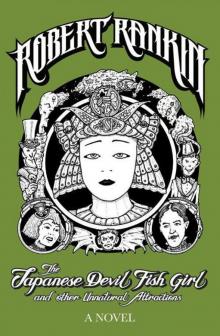 The Japanese Devil Fish Girl and Other Unnatural Attractions
The Japanese Devil Fish Girl and Other Unnatural Attractions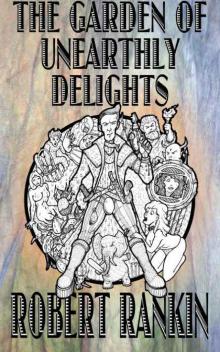 The Garden of Unearthly Delights
The Garden of Unearthly Delights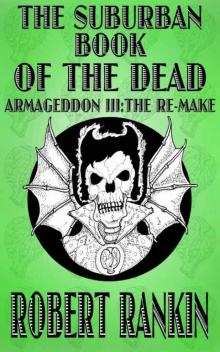 The Suburban Book of the Dead: Armageddon III: The Remake
The Suburban Book of the Dead: Armageddon III: The Remake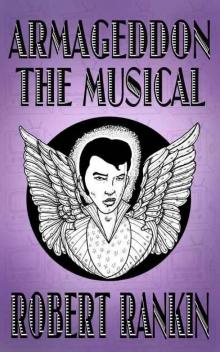 Armageddon_The Musical (Armageddon Trilogy Book 1)
Armageddon_The Musical (Armageddon Trilogy Book 1)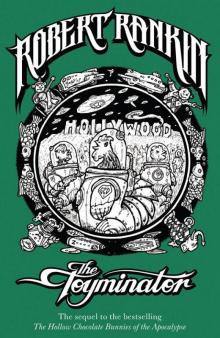 The Toyminator
The Toyminator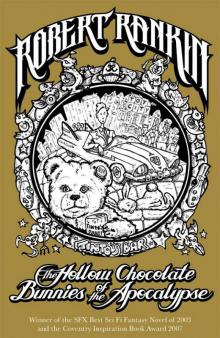 The Hollow Chocolate Bunnies of the Apocalypse
The Hollow Chocolate Bunnies of the Apocalypse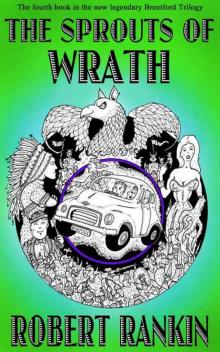 The Sprouts of Wrath
The Sprouts of Wrath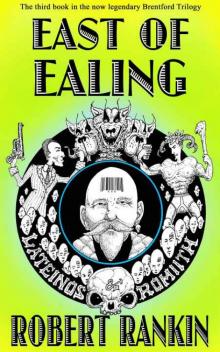 East of Ealing
East of Ealing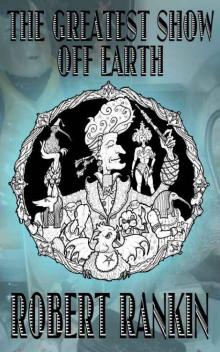 The Greatest Show Off Earth
The Greatest Show Off Earth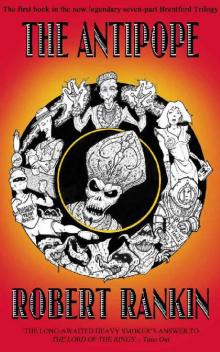 The Antipope
The Antipope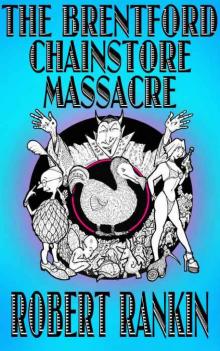 The Brentford Chainstore Massacre
The Brentford Chainstore Massacre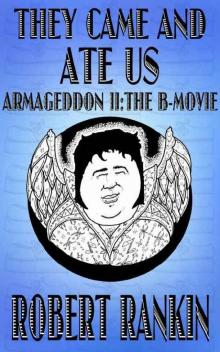 They Came and Ate Us_The B-Movie (Armageddon Trilogy 2)
They Came and Ate Us_The B-Movie (Armageddon Trilogy 2)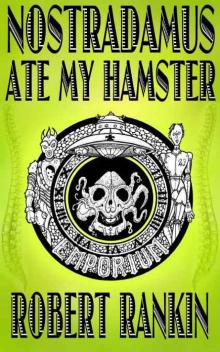 Nostradamus Ate My Hamster
Nostradamus Ate My Hamster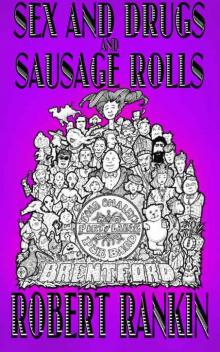 Sex and Drugs and Sausage Rolls
Sex and Drugs and Sausage Rolls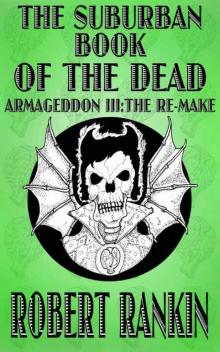 The Suburban Book of the Dead_The Remake (Armageddon Trilogy 3)
The Suburban Book of the Dead_The Remake (Armageddon Trilogy 3)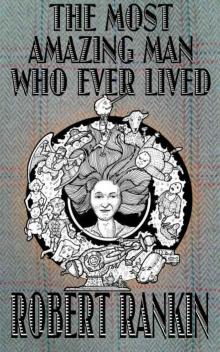 The Most Amazing Man Who Ever Lived
The Most Amazing Man Who Ever Lived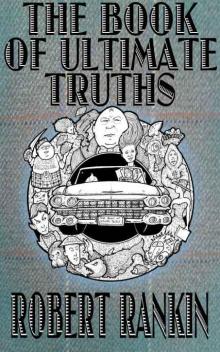 The Book of Ultimate Truths
The Book of Ultimate Truths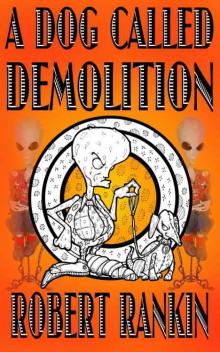 A Dog Called Demolition
A Dog Called Demolition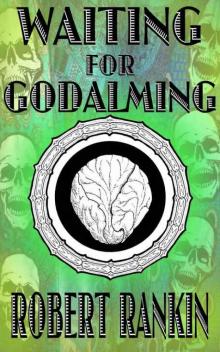 Waiting for Godalming
Waiting for Godalming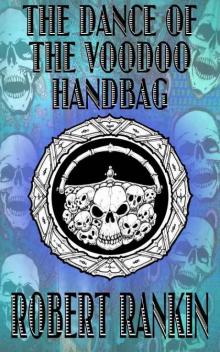 The Dance of the Voodoo Handbag
The Dance of the Voodoo Handbag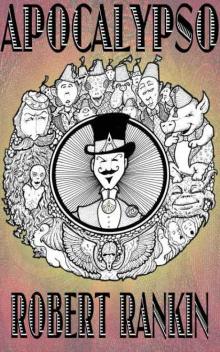 Apocalypso
Apocalypso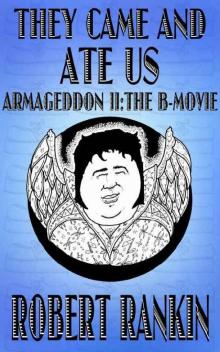 They Came and Ate Us: Armageddon II: The B-Movie
They Came and Ate Us: Armageddon II: The B-Movie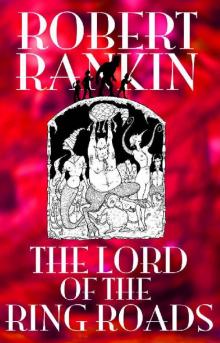 The Lord of the Ring Roads
The Lord of the Ring Roads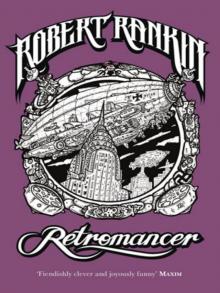 Retromancer
Retromancer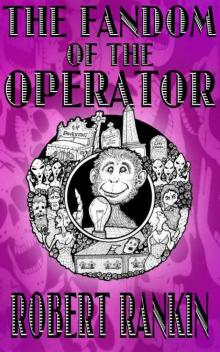 The Fandom of the Operator
The Fandom of the Operator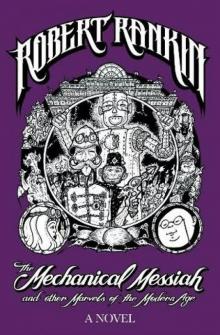 The Mechanical Messiah and Other Marvels of the Modern Age
The Mechanical Messiah and Other Marvels of the Modern Age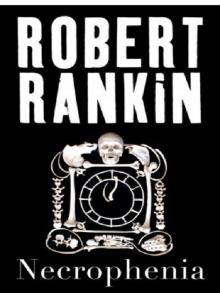 Necrophenia
Necrophenia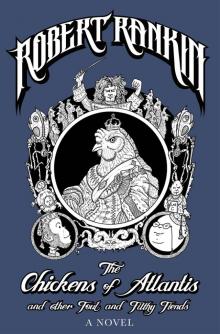 The Chickens of Atlantis and Other Foul and Filthy Fiends
The Chickens of Atlantis and Other Foul and Filthy Fiends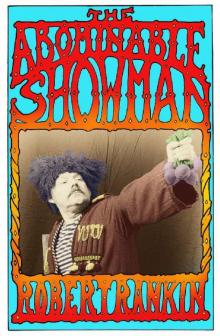 The Abominable Showman
The Abominable Showman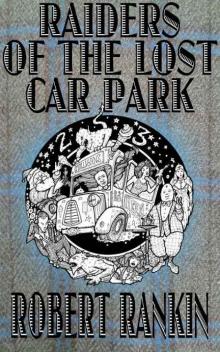 Raiders of the Lost Carpark
Raiders of the Lost Carpark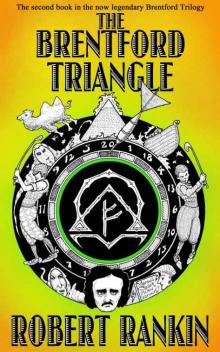 The Brentford Triangle
The Brentford Triangle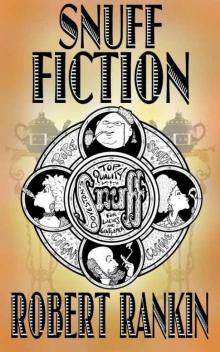 Snuff Fiction
Snuff Fiction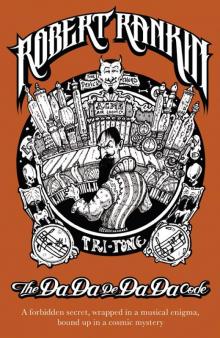 The Da-Da-De-Da-Da Code
The Da-Da-De-Da-Da Code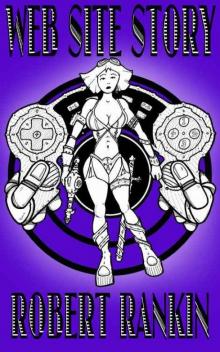 Web Site Story
Web Site Story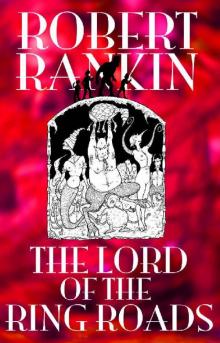 The Lord of the Ring Roads (The Final Brentford Trilogy Book 1)
The Lord of the Ring Roads (The Final Brentford Trilogy Book 1)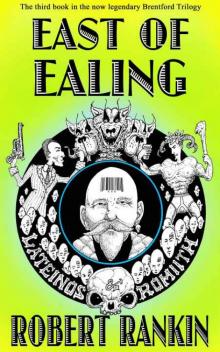 East of Ealing (The Brentford Trilogy Book 3)
East of Ealing (The Brentford Trilogy Book 3)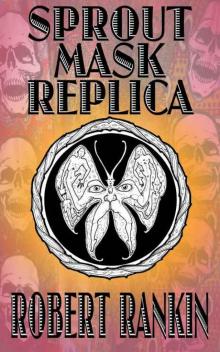 Sprout Mask Replica (Completely Barking Mad Trilogy Book 1)
Sprout Mask Replica (Completely Barking Mad Trilogy Book 1)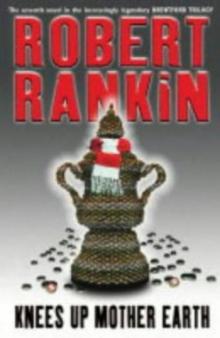 Knees Up Mother Earth bs-7
Knees Up Mother Earth bs-7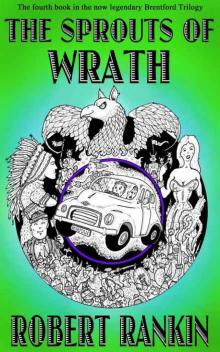 The Sprouts of Wrath (The Brentford Trilogy Book 4)
The Sprouts of Wrath (The Brentford Trilogy Book 4)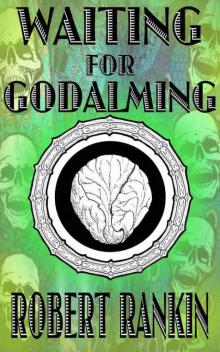 Waiting for Godalming (Completely Barking Mad Trilogy Book 3)
Waiting for Godalming (Completely Barking Mad Trilogy Book 3)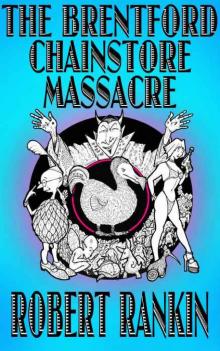 The Brentford Chainstore Massacre (The Brentford Trilogy Book 5)
The Brentford Chainstore Massacre (The Brentford Trilogy Book 5)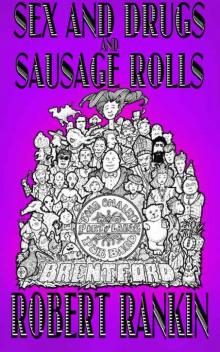 Sex and Drugs and Sausage Rolls (The Brentford Trilogy Book 6)
Sex and Drugs and Sausage Rolls (The Brentford Trilogy Book 6)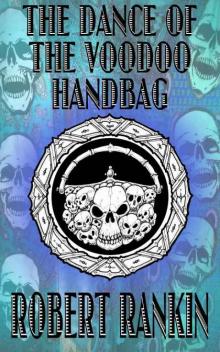 The Dance of the Voodoo Handbag (Completely Barking Mad Trilogy Book 2)
The Dance of the Voodoo Handbag (Completely Barking Mad Trilogy Book 2)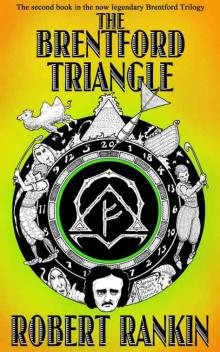 The Brentford Triangle (The Brentford Trilogy Book 2)
The Brentford Triangle (The Brentford Trilogy Book 2)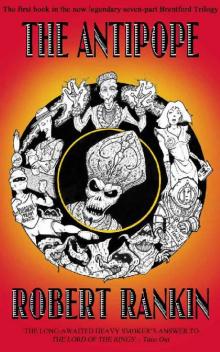 The Antipope (The Brentford Trilogy Book 1)
The Antipope (The Brentford Trilogy Book 1)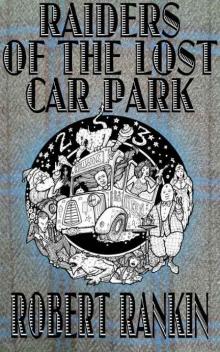 Raiders of the Lost Car Park (The Cornelius Murphy Trilogy Book 2)
Raiders of the Lost Car Park (The Cornelius Murphy Trilogy Book 2)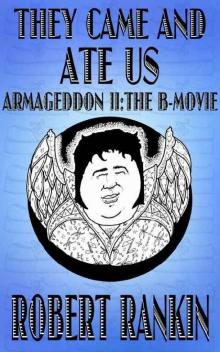 They Came and Ate Us - Armageddon II_The B-Movie (Armageddon Trilogy Book 2)
They Came and Ate Us - Armageddon II_The B-Movie (Armageddon Trilogy Book 2)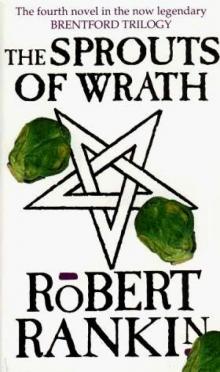 The Sprouts of Wrath bs-4
The Sprouts of Wrath bs-4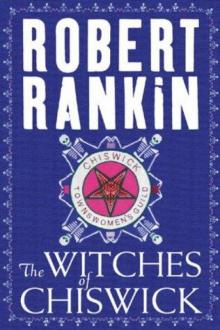 The Witches of Chiswick
The Witches of Chiswick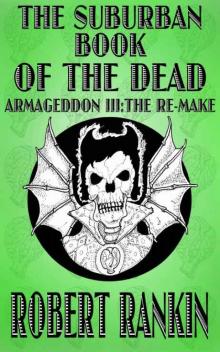 The Suburban Book of the Dead - Armageddon III: The Remake (Armageddon Trilogy 3)
The Suburban Book of the Dead - Armageddon III: The Remake (Armageddon Trilogy 3)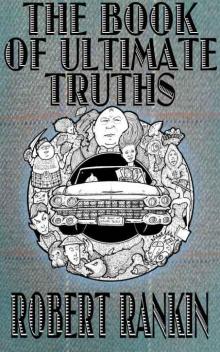 The Book of Ultimate Truths (The Cornelius Murphy Trilogy 1)
The Book of Ultimate Truths (The Cornelius Murphy Trilogy 1)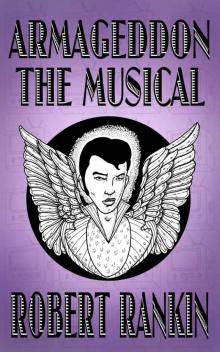 Armageddon: The Musical (Armageddon Trilogy)
Armageddon: The Musical (Armageddon Trilogy)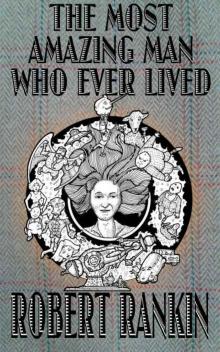 The Most Amazing Man Who Ever Lived (The Cornelius Murphy Trilogy Book 3)
The Most Amazing Man Who Ever Lived (The Cornelius Murphy Trilogy Book 3)